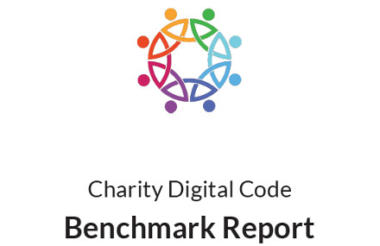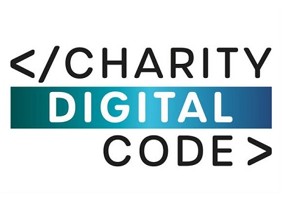Most charities do not have a digital strategy, lack digitally trained staff and should act now to avoid falling behind, according to findings from The Charity Digital Code Benchmark Report.
The benchmarking tool was launched in the autumn and this is the first report, which collated the results 150 charities.
It revealed that 63 per cent of charities do not have a codified digital strategy. 75 per cent of charities also have a shortage of digitally trained staff, which is holding them back from using digital in an effective way.
Martin Francis Campbell, chief information officer of World Vision and chair of the Digital Collective who gathered the data, said that if charities do not improve their digital strategy they will lose out on opportunities and become irrelevant.
“Digital is essential for charities to be relevant and to fulfil their purpose in the digital age,” he said.
“Those organisations which don’t embrace digital, and soon, will quickly go the way of Woolworths and Borders. Nostalgic organisations which remind us of the way things used to be.”
The report also highlighted a lack of collaboration, with 75 per cent revealing that they lack the time and resources to look at what other charities were doing.
The findings come from analysing the responses to the Charity Digital Code Quick Assessment Tool, a benchmarking tool charities can use to test their own digital capabilities, and share their data anonymously with the rest of the sector.
It was launched on 15 November 2018 to coincide with the launch of the Charity Digital Code and so far some 150 charities have used the tool.
The tool helps charities benchmark their progress against The Charity Digital Code of Practice, which outlines seven principles of digital leadership, including leadership and adaptability to help charities make better use of technology. It was developed by Martin Campbell, chief information officer at World Vision, and surveyed respondents on their digital capabilities relating to themes including strategic approach, governance, skills, and insight and evaluation, inclusion and collaboration. It then rates the charities digital proficiencies out of 30.
Lack of diversity
Another issue raised by the report was diversity. Despite the Code of Practice advising that there is a link between strong diversity and increased digital capability, 7 per cent of charities reported that they had an intent to build diverse teams and were achieving this.
The report said: “Diversity within charities proves the most challenging area covered by the questionnaire.”
However 77 per cent of charities said they have guidance on digital strategy from their board and 20 per cent said senior leaders and trustees set a clear vision for digital.
Campbell also noted that the findings were not surprising, as the code was “aspirational”, and “a target to aim towards, not a baseline from which to work”.
Zoe Amar, who chairs the Charity Digital Code, said: “It’s helpful to have these early insights into where the charity sector is at in relation to The Charity Digital Code of Practice. The results show that there is some way to go with digital in the sector, which is a concern. The best practice set out in the Code is designed to be ambitious in order to raise standards and we encourage charities to work towards it, as this will help them increase impact, improve sustainability and develop skills.”
Jonathan May, chief executive of Hubbub Fundraising, which sponsored the research, said: “It's vital that charities use this benchmark as the measure of the size and urgency of the task ahead. The benchmark suggests that the sector as a whole is at risk of falling behind, and now is the time to act.”
|
Related articles










